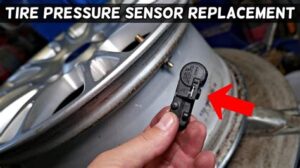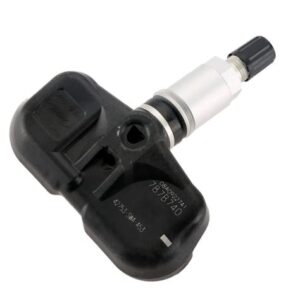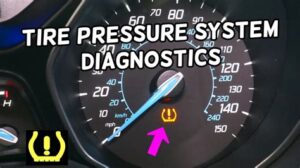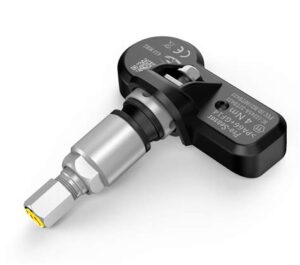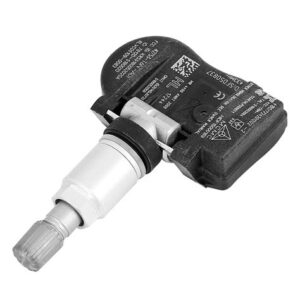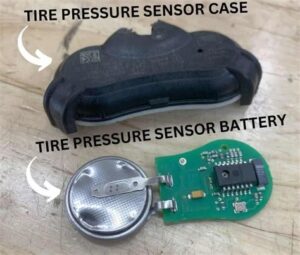Learn about BMW tire pressure sensors, their importance, functionality, common issues, and troubleshooting tips to ensure optimal vehicle performance and safety.When it comes to ensuring a safe and smooth driving experience, the importance of proper tire maintenance cannot be overstated, especially for BMW owners. Tire pressure sensors play a crucial role in monitoring the health of your tires, alerting you to any fluctuations that could compromise performance and safety. In this blog post, we will delve into the intricate workings of BMW tire pressure sensors, explore why maintaining optimal tire pressure is essential, and identify common issues that may arise. We’ll also provide you with practical troubleshooting tips to keep your tires and sensors in top shape. Whether you’re a seasoned BMW enthusiast or a new owner, understanding these components is key to a reliable driving experience. Let’s get started!
Understanding BMW Tire Pressure Sensors
The BMW tire pressure sensors are a crucial component of the vehicle’s safety and performance system. These sensors monitor the air pressure in the tires and provide real-time feedback to the driver, ensuring that the vehicle operates under optimal conditions.
Here are some key points to understand about BMW tire pressure sensors:
- Functionality: The primary function of tire pressure sensors is to detect whether the air pressure in each tire is at the recommended level. When the pressure drops below that level, the sensors trigger a warning light on the dashboard.
- Types of Sensors: BMW utilizes two main types of tire pressure sensors: direct and indirect. Direct sensors measure air pressure from within the tire, while indirect sensors estimate pressure through wheel speed and other data.
- Location: Direct tire pressure sensors are typically located inside the tire mounted on the valve stem, while indirect sensors may be incorporated into the ABS system.
- Calibration: It’s essential for BMW tire pressure sensors to be calibrated correctly. This ensures accurate readings and helps prevent any potential safety issues.
- Maintenance: Routine checks of the sensors and tire pressure are recommended to maintain peak performance and prolong tire life.
Understanding how these sensors work and their importance can significantly enhance your driving experience and safety. If you notice the tire pressure warning light on your dashboard, it is vital to act promptly to check your tire pressure.
“Proper tire pressure is important for safety, fuel efficiency, and tire longevity.”
Importance of Maintaining Proper Tire Pressure
Maintaining proper tire pressure is crucial for the overall performance and safety of your BMW. Adequate tire pressure improves handling, maximizes fuel efficiency, and enhances the lifespan of your tires. Below are some key reasons why keeping an eye on your tire pressure is essential:
- Safety: Properly inflated tires ensure better traction and handling, reducing the risk of accidents.
- Fuel Efficiency: Under-inflated tires create more rolling resistance, causing your engine to work harder and consume more fuel.
- Tire Longevity: Keeping tires inflated to the recommended pressure can help prevent uneven wear, extending their lifespan.
- Environmental Impact: Improved fuel efficiency from well-inflated tires leads to lower CO2 emissions, contributing to a greener environment.
- Performance: Proper tire pressure guarantees optimal performance, providing a smoother and more responsive driving experience.
In BMW vehicles, tire pressure monitoring systems (TPMS) play a vital role in alerting drivers when tire pressure is low. Regularly checking and maintaining tire pressure can prevent issues before they arise, ensuring a safe and enjoyable driving experience.
To sum it up, giving attention to your BMW’s tire pressure is not just a routine check; it’s a significant aspect of vehicle maintenance that impacts your safety, performance, and wallet.
How BMW Tire Pressure Sensors Work
BMW vehicles are equipped with advanced tire pressure sensors that play a crucial role in maintaining optimal tire performance and safety. Understanding how these sensors work can help you appreciate their importance in your driving experience.
Types of Tire Pressure Monitoring Systems (TPMS)
BMW generally uses two types of Tire Pressure Monitoring Systems (TPMS): Direct TPMS and Indirect TPMS.
| TPMS Type | Description |
|---|---|
| Direct TPMS | Utilizes sensors mounted on each tire to measure tire pressure and send data to the vehicle’s onboard computer. |
| Indirect TPMS | Relies on the vehicle’s ABS system to monitor tire rotation speed. A drop in pressure will cause the affected tire to rotate at a different speed compared to others. |
How Direct TPMS Works
In direct TPMS, each tire has a dedicated sensor that continuously measures the air pressure. Here’s how it functions:
- The sensor detects tire pressure and temperature.
- This data is transmitted wirelessly to the vehicle’s electronic control unit (ECU).
- The ECU analyzes the data to determine if tire pressure is within the recommended range.
- If it detects low pressure, the system triggers the warning light on the dashboard.
How Indirect TPMS Works
The indirect TPMS utilizes existing systems to monitor tire pressure indirectly:
- The system measures the rotation speed of each tire through the ABS sensors.
- If a tire is under-inflated, it will rotate at a different speed than properly inflated tires.
- The ECU then analyzes these differences and triggers a warning light if a discrepancy is found.
Benefits of BMW Tire Pressure Sensors
The proper functioning of BMW tire pressure sensors offers several benefits:
- Enhanced Safety: Ensures optimal traction and handling by maintaining proper tire pressure.
- Fuel Efficiency: Proper tire inflation contributes to better fuel economy.
- Prolonged Tire Life: Helps in avoiding uneven tire wear.
Conclusion
Understanding how BMW tire pressure sensors work can help you maintain your vehicle more effectively. Regular monitoring and maintenance of these sensors can lead to a safer and more efficient driving experience.
Common Issues with BMW Tire Pressure Sensors
Tire pressure sensors play a crucial role in maintaining the safety and efficiency of your BMW vehicle. However, like any technology, they can encounter problems that may affect their functionality. Here are some common issues with BMW tire pressure sensors and tips on how to address them:
- Low Battery Life: One of the most frequent issues faced by tire pressure sensors is a weak or dead battery. Most sensors are powered by batteries that have a limited lifespan. When the battery runs low, it may fail to transmit accurate readings.
- Damaged Sensors: Physical damage to the sensors, such as impacts during tire changes or harsh driving conditions, can lead to malfunction. Regular inspections can help identify any signs of damage early.
- Incorrect Installation: If tire pressure sensors are improperly installed, they may not function correctly. It’s essential to ensure that sensors are installed following the manufacturer’s guidelines, especially after changing tires.
- Faulty Wiring: Damaged or loose wiring connected to the tire pressure sensors can cause issues in communication. Check the wiring for any signs of wear, corrosion, or disconnection.
- Environmental Factors: Extreme weather conditions can affect tire pressure readings. Heated or cooled sensors may not perform accurately if exposed to rapid temperature fluctuations.
- Interference from Other Systems: Occasionally, interference from other electronic systems in the vehicle can affect tire pressure sensor performance. Checking for software updates or system diagnostics may help resolve this issue.
Regular maintenance and attention to your BMW tire pressure sensors can prevent many of these common issues. If you suspect a malfunction, it’s always advisable to consult with a qualified professional to ensure your safety on the road.
Tips for Troubleshooting BMW Tire Pressure Sensors
Troubleshooting BMW tire pressure sensors can be a bit tricky, especially if you’re unfamiliar with how they operate. However, with the right approach, you can efficiently identify and resolve issues related to tire pressure monitoring. Here are some practical tips to help you troubleshoot your BMW tire pressure sensors:
- Check the Tire Pressure: Start by checking the tire pressure of all four tires using a reliable gauge. Ensure that they are inflated to the manufacturer-recommended levels as listed in your owner’s manual.
- Reset the Tire Pressure Monitoring System (TPMS): Sometimes, simply resetting the TPMS can resolve issues. Follow these steps:
- Turn the ignition to the ON position without starting the engine.
- Locate and press the TPMS reset button (usually found under the steering wheel or in the glove compartment).
- Hold the button until the TPMS light blinks and then stays on.
- Inspect the Sensors: Visually inspect the tire pressure sensors for damage or corrosion. Look especially at the valve stems and the area where they attach to the tires.
- Check for Fault Codes: Use an OBD-II scanner to check for any fault codes related to the TPMS. This can provide specific information about what is malfunctioning in the system.
- Look for Leaks: If your tires are consistently losing pressure, inspect for any punctures or leaks. A slow leak will trigger the TPMS warning light.
- Battery Check: Depending on the model, some tire pressure sensors are battery-operated. If the battery is low or dead, you may need to replace the sensors.
- Consult a Professional: If you’re unable to identify the problem, it may be time to visit a certified mechanic or dealership. They have the tools and expertise to diagnose and fix the issue.
Note: Always refer to your owner’s manual for specific instructions related to your BMW model.
Preventing tire issues starts with understanding your vehicle’s monitoring systems. – Expert Automotive Mechanic
By following these tips, you can effectively troubleshoot and potentially solve issues with your BMW tire pressure sensors, ensuring your vehicle operates safely and efficiently.
Frequently Asked Questions
What are BMW tire pressure sensors?
BMW tire pressure sensors are devices that monitor the air pressure in the tires of a BMW vehicle, alerting the driver when the pressure is too low or too high.
How do BMW tire pressure sensors work?
These sensors use a combination of radio frequency signals and onboard vehicle systems to continuously measure tire pressure and send information to the vehicle’s dashboard.
Why are tire pressure sensors important for BMW vehicles?
Tire pressure sensors are crucial for ensuring optimal tire performance, improving fuel efficiency, enhancing safety, and prolonging the lifespan of the tires.
What should I do if my BMW tire pressure sensor light is on?
If the tire pressure sensor light is illuminated, check the tire pressures using a gauge, inflate or deflate tires as necessary, and if the light persists, consider consulting a professional for potential sensor issues.
Can I replace BMW tire pressure sensors myself?
While it’s possible to replace the sensors yourself if you have the right tools and knowledge, it’s recommended to have them installed by a professional to ensure proper calibration and functionality.
How often should I check my BMW tire pressure sensors?
It’s a good practice to check your tire pressures at least once a month and before long trips, as well as ensuring the sensors are functioning correctly during routine maintenance.
What can cause BMW tire pressure sensors to malfunction?
Malfunctions can occur due to battery failure in the sensors, damage from impacts or road hazards, or interference from external factors such as changes in temperature or tire rotation.
